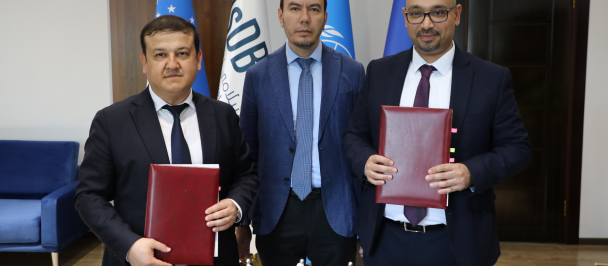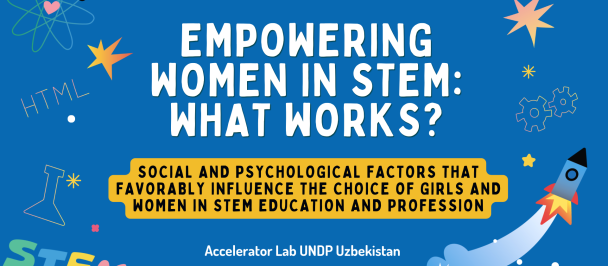Photo: Ministry of Investment and Foreign Trade of Uzbekistan
Assalomu aleykum hurmatli khonimlar va janoblar, aziz forum ishtirokchilari!
(Dear distinguished ladies and gentlemen, participants of today’s forum!)
Let me congratulate the Government of Uzbekistan on the successful Tashkent International Investment Forum, which not only helped to take stock of the past reforms, but also availed a constructive dialogue about next phase of reform agenda through structural transformation, effective governance and green growth.
Emerging Human Capabilities
I will make three points only. Let me start with the broad thinking that addressing poverty and inequality is investment in human capital. Human capital or capabilities of people are at the core of economic and sustainable development. But, human capabilities evolved and were impacted during the pandemic.
Human capital is becoming more complex and is defined not only by basic capabilities, such as those provided through access to primary education, but with enhanced capabilities. The 2019 Human Development Report of UNDP analysed these issues and argued that the world of 21 Century necessitates that to have a fulfilling life people have not only the basic capabilities (not only good income, health and education), but they need what is called – enhanced capabilities for the 21 Century (good internet access, digital and financial literacy, clean and balanced environment, access to green jobs, jobs of the future). These are the issues that will become more important in the future and will be more empowering.
In fact, before the pandemic the inequalities in basic capabilities were shrinking (like the inequalities in life expectancy at birth), while a new generation of severe inequalities in human development was emerging (such as technology, internet access related inequalities, climate change).
The other trend relates to the changing concerns and expectations of people. The recent UNDP Special Report on Human Security pointed that that basically, despite people on average living longer, healthier, and wealthier lives, these advances have not succeeded in increasing people’s sense of security. Perceptions of insecurity is worsening most in several high-income countries, even before the Covid-19 pandemic. These are new realities and will have to be reflected in the efforts to build equity and trust within the societies.
Impact of COVID
The second point is that while some of these trends changed during COVID but the overall quest for a new level / generation of human capabilities did not change, on the contrary. And that systems have to be more resilient.
Due to COVID19, for the first time in a generation, the quest to end poverty has suffered a setback. Global extreme poverty rose the first time in over 20 years during the pandemic. About 100 million additional people are living in poverty as a result. Women were more impacted – 24% more likely than men to leave the workforce. A category of ‘new poor’ has emerged, 80% of them in MICs. They are predominantly young, with some education, urbanized, working in the informal sector, and some were part of emerging middle-class.
Income inequality is estimated to have also risen and is at record highs with the top 10 percent earning more than half of the world’s income, while the bottom 40 percent earn less than 8 percent. The bottom 40 percent are truly left behind – contrary to what was promised by the “Leave No One Behind” pledge of the 2030 Agenda. One striking feature of the COVID-19 pandemic is that inequalities within countries are now greater than those observed between countries. Looking beyond income, pre-existing inequalities of opportunity have also been amplified, particularly in unequal access to vaccines, healthcare, education, technology and internet. All this has impacted social cohesion the social contracts at different levels.
Countries acted on these in different forms and scales, with differing success. There are many lessons to take from the COVID-19 policy action. I would like to flag two:
a) It is not about just pushing people above the poverty line, with ad hoc or temporary measures, but a fundamental revisit of human development investments is needed of a different magnitude and systemic order that keep the poor well above the line and empower them to move forward.
b) The intensity of the COVID-19 pandemic is declining in some parts of the world, but new threats are emerging. The point is that the systems and policies will have to become more resilient and prepared to respond to crisis in future. For example, situations in the conflict-affected regions (Ukraine and Afghanistan) bring socio-economic implications well beyond these regions, if not globally. Given the unpredictable nature of crises, it is critical that poverty and growth account for and anticipate development emergencies and ensure adequate tools at disposal.
Poverty: context on Uzbekistan
Uzbekistan has experienced a steady GDP growth over the past two decades, gradually diversifying the economy. The income poverty declined from 24% in 2000 to 11.5% in 2020, which meant lifting 2.2 million people out of poverty. This reduction was not consistent in relation to inter-regional inequalities. In fact, the regional disparities persist and are getting wider year-to-year, the urban-rural poverty gap remains wide.
However, Uzbekistan has not been an exception when it comes to threats. COVID-19 pandemic reportedly has pushed an additional 1 mln. people into poverty.
The Government has acted fast. It has unrolled a comprehensive package of measures that addressed the vulnerabilities in the existing social protection system, while responding to the new risks. Number of recipients of social benefits doubled in 2020, reached 1.2 million people, with 5 times more funds allocated to them (compared to 2016). In addition, comprehensive measures in support of private sector were put in place.
Policies in Uzbekistan remain geared towards poverty reduction. A very ambitious goal of halving poverty by 2026 and achieving upper-middle-income status by 2030 has been set up in the New Uzbekistan Development Strategy. These ambitions will require even bigger efforts and investments.
Support offer
My third point is that within this complexity and with the likelihood of more disasters in the future, smart and innovative policies are needed to address the poverty and inequality as way of building a human capital of the future, and basis for sustainable development.
There is an extensive body of evidence supporting policies aimed to lift people from poverty and empower them to be agents in an inclusive, resilient development process and green recovery. It points to few critical issues:
(i) Developing of new poverty and inequality metrics and tools
We start with acknowledging that poverty is multidimensional, and therefore using income data as poverty measurement tool is not sufficient for making effective policy decisions. It is essential to use state of the art tools and metrics to identify the extent and depth of poverty and vulnerability, identify groups that face multidimensional vulnerability, poverty and inequality. For example, to introduce multidimensional measurement instruments to analyze non-monetary deprivations and inequalities (poor health or malnutrition, lack of clean water or electricity, poor quality of work or little schooling) and their interconnections.
We now work with the Center of Economic Research and Reforms and UNICEF in developing a national tool for measuring multidimensional poverty, adapted and tailored to Uzbekistan’s priorities and context.
(ii) Expanding and lifting social protection
Even stronger is now the case for social protection systems that are comprehensive, transformative and well synchronized with other policies. Social Protection is to protect, empower, and transform. Social policies are to address shocks that affect a large share of the population, focusing on vulnerable and marginalized. Social assistance such as cash and in-kind transfers and public works programs, and social insurance, are essential to address the human development impacts of crises. But the aim is to move beyond the need for protection - by expanding capabilities and increasing productive capacities of workers and industries – to support people’s empowerment. That means interventions that remove structural barriers for marginalized youth, address challenges of youth in the informal sector. As well as specific measures that address gender inequalities in labor markets and value chains, accounting for their unfair share of care responsibilities, and promote benefits tailored to them. And much more.
(iii) Enhancing productivity and resilience of informal workers and enterprises
We make a business case for investing in empowering the ‘missing middle’, vulnerable individuals working in the informal sector.
Basically, to move the needle on poverty, vulnerability, and inequality by protecting informal actors and empowering them to benefit from and contribute to inclusive, decent, job-rich, and green recovery. The way to do that can include: (i) use of innovative data and metrics to identify vulnerabilities of informal workers and businesses and better target policy responses; (ii) promoting systems approaches to informality; (iii) engage informal actors in formalization; (iv) expand informal workers’ access to social protection; (v) enhance the productivity/ resilience of informal enterprises whilst facilitating their transitions to formality and engagement in the green economy; (vi) developing innovative financing mechanisms to support their protection and empowerment.
(iv) Harness and shape the Future of Work opportunities
For development of capabilities of the future, we have to move away from sectoral approaches towards holistic, systems approaches of policymaking and programming. Systems approach can help anticipate and act upon the multiple and interconnected drivers of change and support transformative change for people, economies and societies.
For that it is important to: (i) define the boundaries of the future-proof world of work policy; (ii) understand the world of work ecosystem systems, their interactions; and (iii) articulate strategic direction and specific package of investments needed for transformational change in the area of work and connected areas.
Thanks, and conclusion
This is the time to reflect on the past, learn and strategize for the future. And to remind us that much more needs to be done to reduce the inequalities exacerbated during the pandemic. What is needed is a human-centred recovery, beyond GDP growth.
The initiation of new package of reforms is opportunity to steer the country’s development on to a more sustainable and inclusive path – a path that reverses inequalities, tackles poverty and ensures the long-term human security of its people.
Job creation lies at the core of poverty reduction. Therefore, the growing young population of this country present an unprecedented opportunity to become agents of positive transformation, but this youth potential can only be unlocked through the creation of new jobs.
We also have to recognize that it is not just about jobs, but in fact decent work. And let me add – not only jobs and decent work. But– work suited for the 21 Century.
Fighting against poverty also requires us to help build resilience to shocks, like conflicts and natural disasters. To achieve this, we are supporting Uzbekistan’s efforts for peace and security, democratic transition, and actions to mitigate the effects of climate change.
E’tiboringiz uchun katta rahmat!
(Many thanks for your attention)

 Locations
Locations

